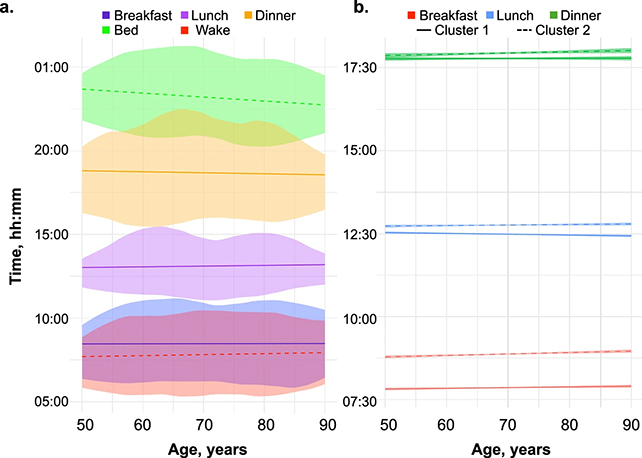A new longitudinal study by an international team of researchers has found a link between eating breakfast later in the day and a greater chance of an early death among elderly people, raising questions about the relationship between mealtimes and illness.
It's not just the food we eat that affects our body's health and well-being; the time we eat our meals is also known to affect our body's functioning. Yet our body's condition can also determine when we may be craving a bite.
Data from 2,945 adults living in Newcastle and Manchester, UK, were collected between 1983 and 2017. The participants were aged between 42 and 94 when they signed up, and information was collected through optional questionnaires on their health, lifestyle, and eating habits.
Related: Switching Off One Crucial Protein Appears to Reverse Brain Aging in Mice
The statistics revealed the volunteers tended to eat breakfast and dinner later in the day as they aged, extending their daily eating over a smaller window of time, too. These later eating times were linked to poorer physical and mental health.
When it came to all-cause mortality – the likelihood of dying for any reason – the researchers found a significant link between eating breakfast later and a higher mortality risk. For each hour later that breakfast was taken, the chance of dying during the study period went up 8-11 percent.
"Our research suggests that changes in when older adults eat, especially the timing of breakfast, could serve as an easy-to-monitor marker of their overall health status," says nutrition scientist Hassan Dashti, from Harvard Medical School.

The researchers aren't saying that eating breakfast later is going to cause you to die at an earlier age – or that shifting your breakfast time forward a few hours will guarantee you get an extra few years added on at the end of your life.
In fact, they suggest the relationship is likely to be driven in the other direction. As we get older and a greater number of health problems mount up, and increase in severity, that means an earlier death is more likely, and also causes later breakfast times.
Poorer health leading to a lack of sleep is one way that might play out, with trouble sleeping leading to difficulty getting up. Deteriorating physical health also means most tasks – including making breakfast – take longer too.
"Up until now, we had a limited insight into how the timing of meals evolves later in life and how this shift relates to overall health and longevity," says Dashti.
"Our findings help fill that gap by showing that later meal timing, especially delayed breakfast, is tied to both health challenges and increased mortality risk in older adults."
One way the study findings might be useful is in identifying older people who are more at risk in terms of their health. It also gives us a greater understanding of how changes in eating habits might affect younger people and older people differently.
The world's population is aging overall – meaning a larger proportion of the total number of people on the planet are older – which makes it increasingly important to spot and interpret these kinds of patterns.
"Patients and clinicians can possibly use shifts in mealtime routines as an early warning sign to look into underlying physical and mental health issues," says Dashti.
"Also, encouraging older adults in having consistent meal schedules could become part of broader strategies to promoting healthy aging and longevity."
The research has been published in Communications Medicine.
